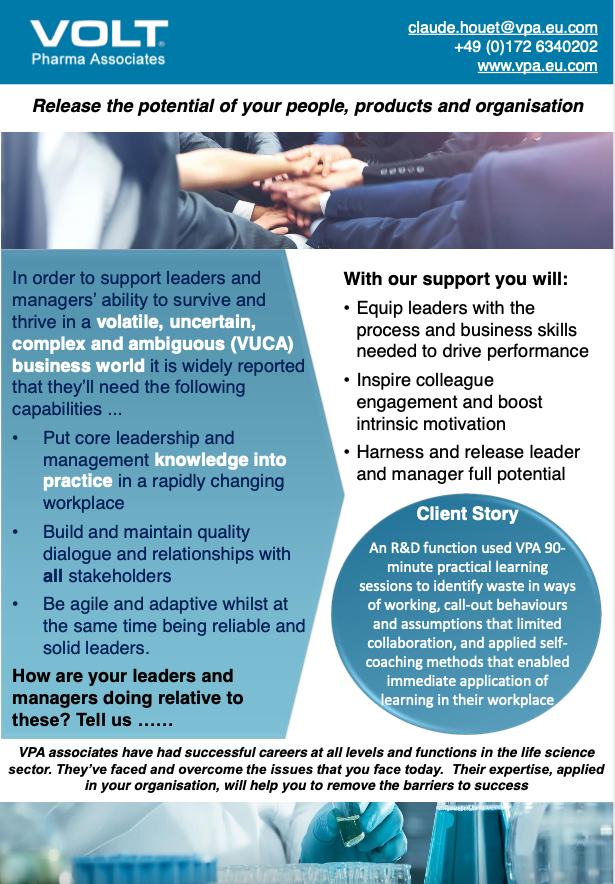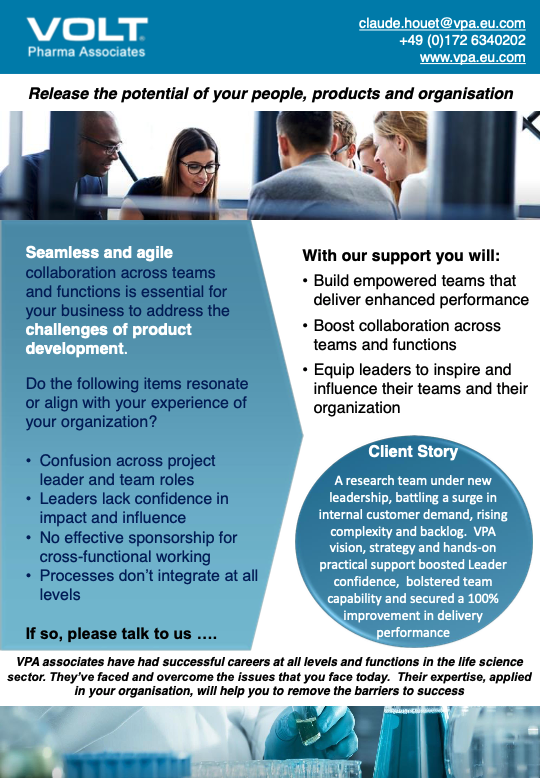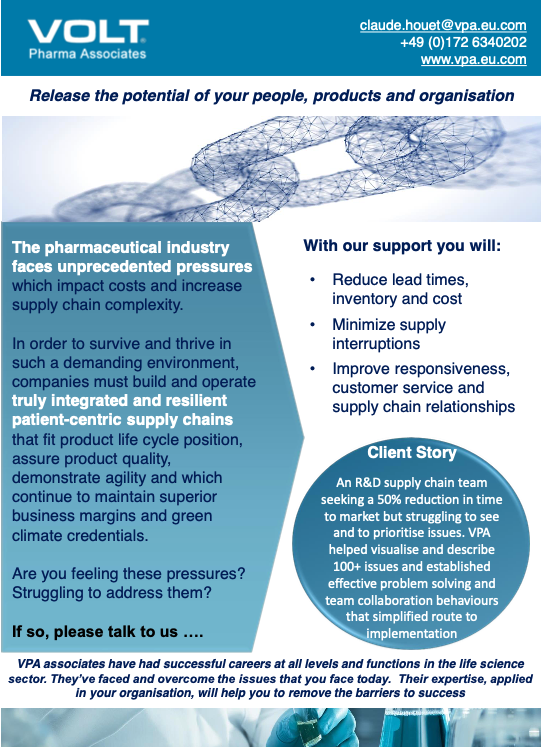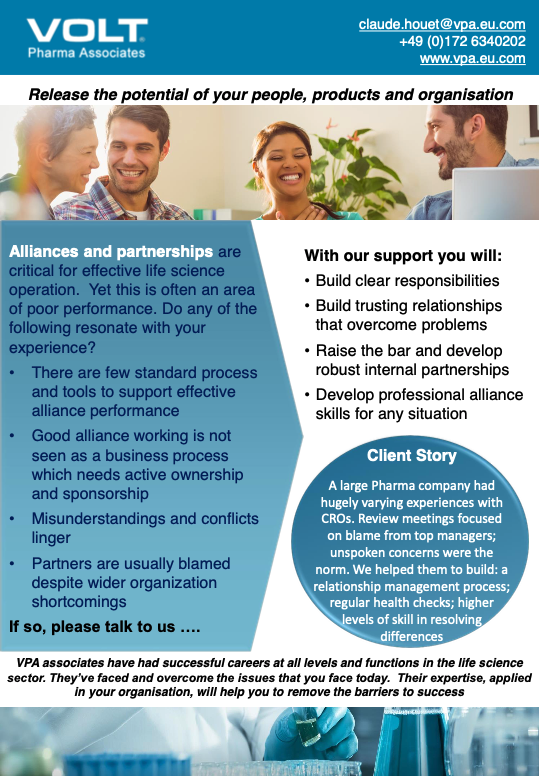Click to Edit
 | Mobile Leadership - what is the mindset? | ||
 | Mobile Leadership - why is it so important? A project-centric way of working is so fundamental to the life science world, you would think that employees would be trained in its disciplines from day one? This may be happening in some organisations, but in very many, it does not. This and subsequent articles focus on the importance of developing the critical skills needed to thrive in this environment. Something we term ‘mobile leadership’. Click to open | ||
| Collaboration across functions and teams This is our 2020 leaflet about our activities in this area. Click to open | ||
 | Leadership in a time of change This is our 2020 leaflet about our activities in this area. Click to open | ||
| Supply Chain excellence This is our 2020 leaflet about our activities in this area. Click to open | ||
| Enhancing Alliances and Partnerships This is our 2020 leaflet about our activities in this area. Click to open | ||
 | Target Product Profiles in Drug Research and Development TPPs are descriptions of key features needed in a new treatment for a disease and are used to guide and drive drug research and development. They can save time and aid communication with regulatory agencies, they can provide direction for drug development programmes, they can help to stop inappropriate drug development and save resources, they can point the way to the critical experiments, and they can summarize drug profiles to varying stakeholders. Click to open | ||
 | From Conflict to Opportunity This is a series of articles about managing conflict, specifically in partnerships and alliances, but the principles apply to any team or project situation. There are three parts: 1. Why does conflict occur? - and why it's important to understand this. Open 2. Dealing with conflict - the mindset required and various tactics. Open 3. Using conflict to generate innovative solutions (Coming soon) | ||
 |
| ||
 | Consequences for Medical Devices in case of a no deal Brexit. Click to read more | ||
 | Is Orphan Drug Status the answer to everyone’s prayers? Developing orphan drugs is a risky business. Small numbers of patients, despite high prices, may not lead to high revenue and there is a high risk of failure to reach the market. But there are advantages. There may be grants available; regulatory processes are simpler. patients and physicians are very eager to try new treatments. Also, small companies may be attracted by the smaller size of clinical trials and shorter development times. There are an estimated 7000 rare diseases, affecting 350 million people globally - and this paper described the landscape of this work in detail. Read More | ||
 | Quality Metrics and the link to Operational Excellence The journey toward provision of 'quality metrics' to regulatory authorities has been a slow process, but it is becoming adopted as a mandatory requirement. Linking quality metrics to performance indicators across an organisation will deliver process and supply chain robustness. This paper describes the FDA’s initiative and the industry reaction so far. Read More | ||
 | The Benefits and Pitfalls of Repurposing Drugs The interest in drug repurposing has grown, as the effort required to bring new drugs to market has increased. When the cost of failed projects is taken into account, it costs c. $2.6bn and 10 years for each new marketed product and these estimates are increasing. Historically, new used for some drug molecules have been found by accident. But in this era, a deep understanding of biological disease processes enables a rational investigation process, to develop an 'on target' repurpose (based on the same biological mechanism) or an 'off target' one (based on the API acting on a different mechanism). This paper discusses the screening of molecules that have failed during development; shorter development paths for repurposed use and the regulatory and IP opportunities. Read More |



























